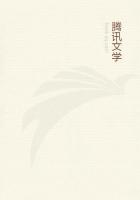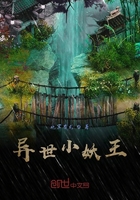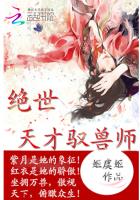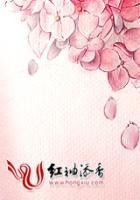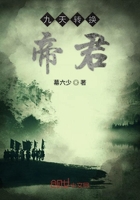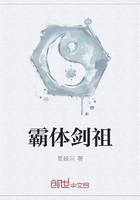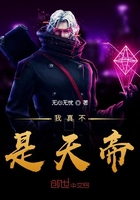"Yes, madam, yes, surely it has done so, but that kind of service that kings do not forgive. He for whom it was made was Archibald Bell-the-Cat, and he girded himself with it the day when, to justify his name, he went to seize in the very tent of King James III, your grandfather, his un worthy favourites, Cochran, Hummel, Leonard, and Torpichen, whom he hanged on Louder Bridge with the halters of his soldiers' horses. It was also with this sword that he slew at one blow, in the lists, Spens of Kilspindie, who had insulted him in the presence of King James IV, counting on the protection his master accorded him, and which did not guard him against it any more than his shield, which it split in two. At his master's death, which took place two years after the defeat of Flodden, on whose battlefield he left his two sons and two hundred warriors of the name of Douglas, it passed into the hands of the Earl of Angus, who drew it from the scabbard when he drove the Hamiltons out of Edinburgh, and that so quickly and completely that the affair was called the 'sweeping of the streets.' Finally, your father James V saw it glisten in the fight of the bridge over the Tweed, when Buccleuch, stirred up by him, wanted to snatch him from the guardianship of the Douglases, and when eighty warriors of the name of Scott remained on the battlefield."
"But," said the queen, "how is it that this weapon, after such exploits, has not remained as a trophy in the Douglas family? No doubt the Earl of Angus required a great occasion to decide him to-renounce in your favour this modern Excalibur". [History of Scotland, by Sir Walter Scott.--"The Abbott": historical part.]
"Yes, no doubt, madam, it was upon a great occasion," replied Lindsay, in spite of the imploring signs made by Melville, "and this will have at least the advantage of the others, in being sufficiently recent for you to remember. It was ten days ago, on the battlefield of Carberry Hill, madam, when the infamous Bothwell had the audacity to make a public challenge in which he defied to single combat whomsoever would dare to maintain that he was not innocent of the murder of the king your husband. I made him answer then, I the third, that he was an assassin. And as he refused to fight with the two others under the pretext that they were only barons, I presented myself in my turn, I who am earl and lord. It was on that occasion that the noble Earl of Morton gave me this good sword to fight him to the death. So that, if he had been a little more presumptuous or a little less cowardly, dogs and vultures would be eating at this moment the pieces that, with the help of this good sword, I should have carved for them from that traitor's carcass."
At these words, Mary Seyton and Robert Melville looked at each other in terror, for the events that they recalled were so recent that they were, so to speak, still living in the queen's heart; but the queen, with incredible impassibility and a smile of contempt on her lips--
"It is easy, my lord," said she, "to vanquish an enemy who does not appear in the lists; however, believe me, if Mary had inherited the Stuarts' sword as she has inherited their sceptre, your sword, long as it is, would yet have seemed to you too short. But as you have only to relate to us now, my lord, what you intended doing, and not what you have done, think it fit that I bring you back to something of more reality; for I do not suppose you have given yourself the trouble to come here purely and simply to add a chapter to the little treatise Des Rodomontades Espagnolles by M. de Brantome."
"You are right, madam," replied Lindsay, reddening with anger, "and you would already know the object of our mission if Lord Ruthven did not so ridiculously keep us waiting. But," added he, "have patience; the matter will not be long now, for here he is."
Indeed, at that moment they heard steps mounting the staircase and approaching the room, and at the sound of these steps, the queen, who had borne with such firmness Lindsay's insults, grew so perceptibly paler, that Melville, who did not take his eyes off her,--put out his hand towards the arm-chair as if to push it towards her; but the queen made a sign that she had no need of it, and gazed at the door with apparent calm. Lord Ruthven appeared; it was the first time that she had seen the son since Rizzio had been assassinated by the father.
Lord Ruthven was both a warrior and a statesman, and at this moment his dress savoured of the two professions: it consisted of a close coat of embroidered buff leather, elegant enough to be worn as a court undress, and on which, if need were, one could buckle a cuirass, for battle: like his father, he was pale; like his father, he was to die young, and, even more than his father, his countenance wore that ill-omened melancholy by which fortune-tellers recognise those who are to die a violent death.
Lord Ruthven united in himself the polished dignity of a courtier and the inflexible character of a minister; but quite resolved as he was to obtain from Mary Stuart, even if it were by violence, what he had come to demand in the regent's name, he none the less made her, on entering, a cold but respectful greeting, to which the queen responded with a courtesy; then the steward drew up to the empty arm-chair a heavy table on which had been prepared everything necessary for writing, and at a sign from the two lords he went out, leaving the queen and her companion alone with the three ambassadors. Then the queen, seeing that this table and this arm-chair were put ready for her, sat down; and after a moment, herself breaking this silence more gloomy than any word could have been "My lords," said she, "you see that I wait: can it be that this message which you have to communicate to me is so terrible that two soldiers as renowned as Lord Lindsay and Lord Ruthven hesitate at the moment of transmitting it?"

